Confirmed speakers for the 2025 members' meeting include:
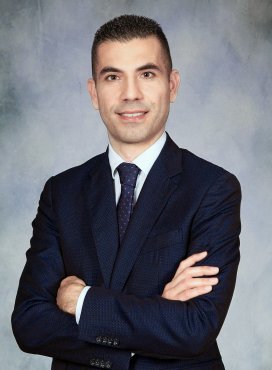
Enrico Bachis
Enrico Bachis joined IFFO in 2009 as Business and Information Manager and was then promoted to Market Research Director in 2017. He is responsible for the market intelligence produced by IFFO also representing the industry within the working group on agri-commodities of OECD-FAO. Enrico graduated from Cagliari University in Sardinia with a Political Science degree before obtaining an MSc in Financial Economics and a PhD in Industrial Economics from the University of Nottingham (UK).
- Market Forum Supply - Tuesday 13 May 2025
Chairman´s Welcome
Fishmeal and fish oil supply: an overview of the global trends
Summary and Conclusions from the Chairman
- Market Forum Demand - Wednesday 14 May 2025
Chairman's Welcome
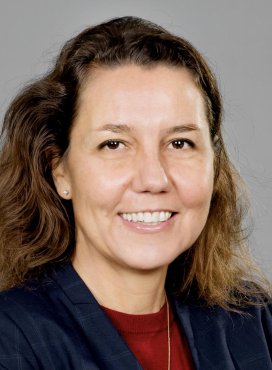
Anne Mette Bæk
Anne Mette is the Executive Director of European Fishmeal and Fish oil Producers (EFFOP), the international association of European fishmeal and fish oil producers. She is also the Executive Director of Marine Ingredients Denmark representing the Danish fishmeal and fish oil industry. Anne Mette has a demonstrated history of working in the food and fishery industry. In her past, Anne Mette has been in the Danish foreign service and has solid experience with public management, political communications, and international relations. Anne Mette is board member of several European market and fishing organisations. She was member of the IFFO Board of Directors from 2014-2021, IFFO President for the period 2020-2021 and Vice President 2018-2019.
- Market Forum Supply - Tuesday 13 May 2025
European fishmeal and fish oil: production insights and regulatory developments
The presentation will provide an overview of European fishmeal and fish oil production, focusing on raw material availability, production trends, and key developments in fish stock conditions and quota allocations. It will also address expectations for 2025 supply, examining current fisheries management. Finally, it will explore the regulatory environment, highlighting the increasing challenges faced by European policymakers and industry leaders due to geopolitical tensions, competitiveness concerns, and shifting trade policies.

Steven Barbosa
Steven Barbosa serves as the Deputy Secretary-General of IPIFF, the International Platform of Insects for Food and Feed. With over 20 years of experience in European affairs, he holds an academic background in Political Science and International Relations. Throughout his career, Steven has held various positions within and towards European institutions, including the Council of the European Union and the European Parliament. He has also worked in national government departments focused on European affairs and collaborated closely with the European Commission in managing EU funding and projects for NGOs, as well as to local and regional authorities.
- Market Forum Supply - Tuesday 13 May 2025
Progress & Developments in the EU insect sector
In this presentation, IPIFF will offer a comprehensive overview of the current state of the EU insect sector, including market projections for derived products such as feed—specifically aquafeed—and food. Additionally, the session will highlight key legislative and regulatory milestones that have been achieved, as well as those currently in progress at the EU level, contributing to the sector's consolidation and growth.
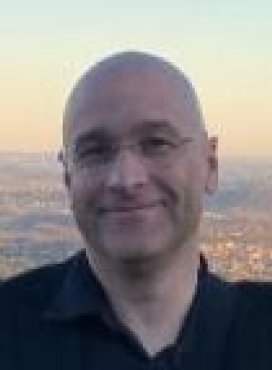
Aldo Bernasconi
Aldo Bernasconi is the VP of Data Science for the Global Organization for EPA and DHA Omega-3s (GOED). His responsibilities include coordinating the collection, analysis, and dissemination of information relevant to omega-3 markets, the development of GOED’s Clinical Study Database, and scientific research on the role of omega-3 fatty acids in health. He holds a PhD in mathematics from the University of Utah.
- Market Forum Demand - Wednesday 14 May 2025
Omega-3 Ingredient Market: a post-El Niño update
The global EPA and DHA omega-3 industry continues to be a diverse, thriving market with global reach and a variety of sources feeding into a robust category backed by solid science. This talk provides an updated view of the size of the demand for omega-3 ingredient oils, and a summary of relevant current trends, challenges and opportunities, as the market recovers from the supply disruptions caused by El Niño.
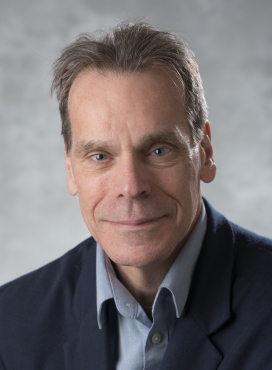
Dominique Bureau
Dom Bureau has over 30 years of experience in academia and industry. He is a professor at the University of Guelph where he leads a dynamic research program on the nutrition of aquaculture species with focus on the efficiency of utilization of amino acids, phosphorus and energy and on feed ingredient evaluation. He works very closely with aquaculture operations, feed manufacturers and ingredient suppliers around the world. He was a member of the US NRC Committee on Nutrient Requirements of Fish and Shrimp (2009-2011). Since 2014, he has been leading the development of the International Aquaculture Feed Formulation Database (www.iaffd.com), a free online resource with detailed data on the composition of over 800 feed ingredients and nutritional specifications for over 40 species at different life stages. The IAFFD was developed to be highly compatible with most least-cost feed formulation programs. Dom is also co-founder of Wittaya Aqua International (wittaya-aqua.ca), a young and innovative company developing cutting-edge online tools and offering support and solutions to feed manufacturers, feed ingredient suppliers and aquaculture operations.
- Market Forum Demand - Wednesday 14 May 2025
Developing tools to support the formulation of feeds for a diverse and ever-changing global aquaculture industry
Aquaculture feeds need to be formulated to very different nutritional and sustainability standards, using ingredients from diverse origins. Tracking the nutritional supply chain, from ingredients, to feed, to fish is very important, notably to objectively monitor progress and report to third parties (e.g. certification programs). Wittaya Aqua has developed a series of user-friendly tools integrated within a digital platform named “AquaOp”. These tools can be used to track ingredient use and characteristics, formulate feeds to different specifications, and track performance and sustainability metrics (e.g. carbon footprint, waste outputs) for commercial production lots. AquaOp can be used to establish a feedback loop between feed composition and field performance and help fine-tune feed formulations to improve sustainability and profitability of aquaculture operations.
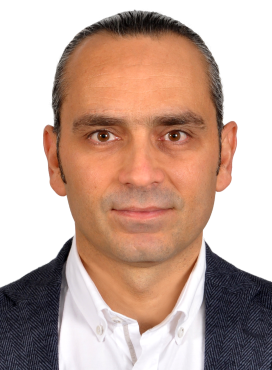
Tufan Eroldoğan
As Head of the Department of Aquaculture in the Faculty of Fisheries at Cukurova University, Turkey, I have extensive expertise in the field. My academic background includes a master's degree and PhD, specialising in the impact of alternative vegetable oils and aquafeed characteristics management. With 25 years of experience in academia, I have engaged in research, development, and practical work in fish nutrition, focusing on alternative sources for cold-water and marine species. I have also founded a spin-off enterprise named Aquaspin. Additionally, I serve as the CTO and shareholder of Demarine, an Aquafeed Mill company gaining prominence in Turkey's aquafeed sector
- Market Forum Supply – Tuesday 13 May 2025
Microplastics: Potential Effects on Fish Physiology?
Micro- and nanoplastics (MNPs) are increasingly being recognised as pollutants of concern because of their accumulation in diverse environmental systems, including oceanic and freshwater bodies, the atmosphere, terrestrial environments, and biological organisms. MPs affect both the environment and aquaculture ecosystems. In my presentation, I address how MPs can be potential problems in the aquafeed industry. I will discuss our recent findings on the effects of different MP types, particularly major types, on sea bream and Atlantic salmon growth and digestibility, as well as some health indicators. I will also present datasets showing global fishmeal MP contamination and where that sits in the broader feed ingredient sector.
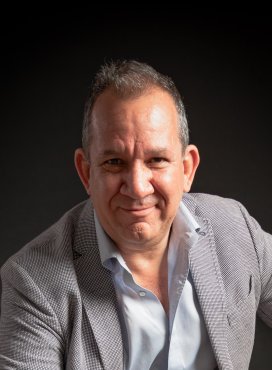
Jorge Garcia Herz
With nearly 30 years of experience in the fish oil industry, Jorge Garcia has been a key driver of its operational, commercial, and strategic advancements. He played a crucial role in developing the first commercial sourcing structures for the Omega-3 sector.
As the CEO and Founder of MAREX Global Sourcing, he leverages his expertise in industrial engineering, management, international business, and sustainability to maximize the value of marine ingredients. Committed to ensuring every resource reaches its optimal market, his approach prioritizes innovation and responsible sourcing, transforming industry by-products into high-value solutions through strategic partnerships while enhancing the benefits of EPA and DHA.
A published author and thought leader in Omega-3, marine sustainability, and the blue economy, Jorge envisions MAREX redefining the way limited wild biomass is utilized. Through innovation and collaboration, he is committed to creating a more sustainable and efficient future for marine sourcing.
- Market Forum Demand - Wednesday 14 May 2025
Major trends in fish oil production, consumption and trade
Dr Brett Glencross
Dr Brett Glencross is the Technical Director of IFFO (The Marine Ingredients Organisation) having commenced this role in June 2021. Prior to this role he was the Professor of Nutrition at the Institute of Aquaculture at the University of Stirling in Scotland. Over the past 25 years he has worked in various academic, institutional, and industrial roles across Australasia, the Middle East and Europe. Throughout his career he has worked closely with many aquaculture production (farming) and feed companies throughout each of these regions. His research achievements have delivered many industrial outcomes resulting in the development of new processes, products, and applications. For his achievements in this regard, Brett has received multiple awards and commendations from both Government and Industrial organisations. At an academic level, he was one of the former editors of the journal Aquaculture Nutrition from 2008 to 2016. He is also the current Chair of the International Scientific Committee of the International Symposium for Fish Nutrition and Feeding (ISFNF). He has also been a Director of the Asia-Pacific Chapter of the World Aquaculture Society (2013 - 2016), as well as undertaking leadership roles at the CSIRO in Australia and the Institute of Aquaculture. Brett has Honours and Masters Degrees in Biochemistry from the University of Western Australia and a PhD in Animal Nutrition from the University of Queensland.
- Market Forum Supply - Tuesday 13 May 2025
Chairman's Welcome
Navigating the Seas of the IMO Regulations
Interactive SURVEY
- Market Forum Demand - Wednesday 14 May 2025
Chairman's Welcome
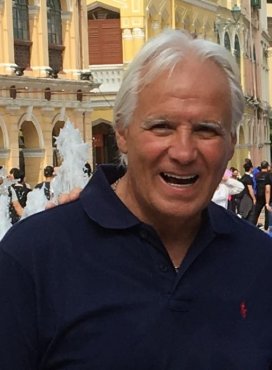
Eduardo Goycoolea
Eduardo is one of the founders of IFFO when former IFOMA an FEO were merged, being copresident during its first year. He has then been a Board member almost all the time, including Vicepresidency in 2016-2017 and then President for the 2018-2019 period. Eduardo was the Sales & Marketing Director for the Chilean fishing companies El Golfo, and then Blumar, for more than 20 years until 2015. He has also been a Board member of several other local and international organizations around the world, including being the Executive Director of New World Currents, a five chilean salmon producing companies joint venture to sell in China, and Director and vice President of Exapesca, a Chilean fishoil producers joint venture that sold their products together. He also represented GSI, the Global Salmon Initiative, in the ASC Steering Committee that developed the new ASC Feed Standard. Currently he is vice president of IFFO and also seats in the Governing Body of MarinTrust.
- Market Forum Supply - Tuesday 13 May 2025
Update on the Chilean supply of marine ingredients
Eduardo’s presentation will include a review of the fishing regions, the fisheries status including quotas, catches and biomasses, as well as a short review of salmon harvests and fishmeal and fish oil production from salmon offals. We will then cover industry challenges.
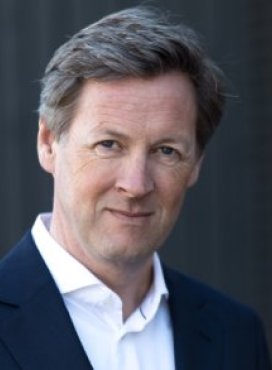
Petter M. Johannessen
Petter M. Johannessen has been heading IFFO The Marine Ingredients Organisation since 2018. He is passionate about seeing the contribution of marine ingredients to global food production recognised, while supporting continuous improvement and responsible practices. IFFO actively engages in and initiates collaborative efforts, considering them a cornerstone of its operations. Johannessen is notably recognised as a founding member of the Global Roundtable on Marine Ingredients, alongside the Sustainable Fisheries Partnership. Prior to his current role, Johannessen held industry executive positions including Global Business Director for Risk Management and Sourcing at Cargil Aqua Nutrition, as well as serving as Supply Chain Director and Global Sourcing and Purchasing Lead at EWOS Group.
- Market Forum Demand - Tuesday 13 May 2025
Opening Remarks

Audun Lem
Audun is with FAO since 1996 where he is a Deputy Director of the Fisheries and Aquaculture Division with responsibility for the technical area of value-chains, market access and trade. Audun served for many years as the Secretary of FAO’s COFI Sub-Committee on Trade, the main international body for discussion and recommendations on trade and market issues in the sector. He has also served as the acting Secretary of COFI, FAO’s Technical Committee for Fisheries and Aquaculture, and was for many years the Coordinator of the GLOBEFISH project.
His thematic work areas include commodity analysis, price trends and price indexes, global value-chain analysis, capacity-building in developing and transition countries, multilateral trade agreements, policy issues related to international trade and market access, market-based instruments, social responsibility, certification, traceability, trade and food security and domestic and regional market development.
Before joining FAO, he worked as an independent agribusiness consultant, as project manager at Norway’s Embassy in Italy and as a financial analyst on the Oslo Stock Exchange.
Audun has a PhD in Agricultural Sciences from the Sea Fisheries Institute in Poland, a Master in Business Administration from Harvard University and a Bachelor of Arts in Economics from the Norwegian School of Economics.
- Market Forum Demand - Wednesday 14 May 2025
Supply and trade of seafood: a macro perspective
Over the last decades, the fisheries and aquaculture sectors have undergone tremendous changes, not only in terms of supply growth, but also of demand patterns, consumption levels, product development, logistics and distribution. At the same time, the overall context has evolved with climate change impacts, changes in the regulatory framework and the growing role of market based instruments influencing processors, retail chain buyers and consumers alike.
In addition, market volatility has grown due to external events such as the COVID pandemic, the Ukraine war, transportation disruptions and recent unilateral decisions on import tariffs leading to reduced industry and consumer confidence, more uncertainty and a higher risk of economic downturn.
However, the long-term prospects for the sector remain positive with growing average consumption levels and new markets developing in a multiplicity of countries, a greater emphasis on aquatic foods as part of a healthy diet and the key role of aquatic food systems within food systems in general.
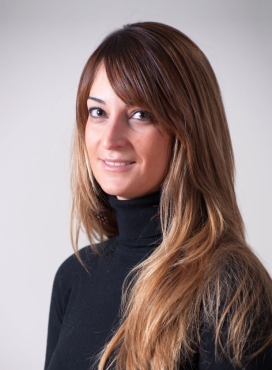
Julia Mas Muñoz
Julia Mas Munoz, has a the PhD in Fish Nutrition from Wageningen University and over a decade of practical experience in the animal feed industry. She is currently serving as Global Aqua Nutrition and Support Manager at De Heus Animal Nutrition B.V. Her expertise lies in applied research on aquaculture nutrition, raw materials evaluation and feed formulation for aquaculture species. Since joining Royal De Heus Animal Nutrition B.V. in 2012, Julia has managed the global aqua R&D team, aqua formulations and is responsible for aqua product management support, ensuring the successful rollout of aqua feed products and tailored technical support in Asia and Africa markets.
- Market Forum Demand - Wednesday 14 May 2025
Marine ingredients from Feed producer's perspective (TBC)
De Heus Animal Nutrition B.V is a Dutch family-owned company producing over 12 million metric tons of compound feed per year. Offering a complete range of compound feed, premixes, concentrates and specialties for livestock and aquaculture farmers and dealers with more than 90 production sites in over 20 countries. De Heus is operating on a global scale and is committed to continuing its strong growth trajectory worldwide. Marine byproducts are a key strategic raw material, especially for our feed formulation in shrimp, fingerling and carnivore fish species. During the presentation, we will shed light on the marine ingredients market from the consumer perspective, the main challenges and opportunities. We will discuss, amongst other things, our nutritional and quality standards, sustainability and alternatives raw materials in feed formulations. We look forward to a fruitful discussion.
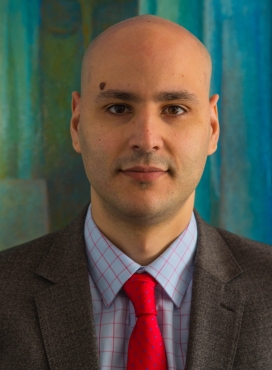
Carlos Mera
Carlos Mera heads Rabobank’s Agri Commodity Market Research team (ACMR) out of London. He joined Rabobank in 2015, having spent over seven years at a large physical commodity trading house. Carlos has visited over a thousand farms in several countries and is an experienced crop forecaster. Carlos holds a BSc Economics from University of Buenos Aires and a MSc Finance from the London School of Economics and Political Science.
- Market Forum Supply- Tuesday 13 May 2025
Major trends in the agri-commodities markets
Prices of major grains and oilseeds have been steadily declining since the spike that followed the invasion of Ukraine. An apparent impasse in the war, ongoing area expansion out of Brazil and Russia, and stellar crop yields in the US last year, combined with demand weakness to pressure grain and oilseed prices down. While it is still early to estimate the major harvest in the 2025/26 season, production of major grains and oilseeds for the ending 2024/25 season looks good. However, it is not all rosy: Rapidly changing tariffs and regulation are posing increasing challenges to the international trade. Even if the crop volumes are there, the trade flows may be different than the historical norm, at a cost.
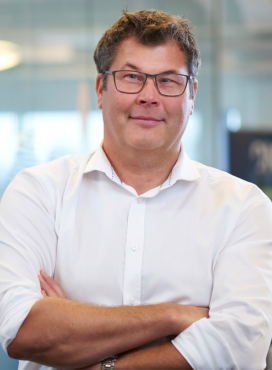
Ragnar Nystøy
Ragnar Nystøyl has been with Kontali for over two decades, serving as the Managing Director from 2007-2017 and as Head of Kontali’s analysis department the next two years, and Chief Analyst since 2021. As a market and seafood analyst, Nystøyl’s focus has primarily been on farmed salmonids, but has also held a “aquaculture generalist” or “seafood generalist” role for the majority of this period. Nystøyl holds a bachelor’s degree in business administration and export marketing from Trondheim Business School and the Madrid campus of Suffolk University, respectively.
- Market Forum Demand- Wednesday 14 May 2025
Where is the growth in aquaculture? An overview of the latest developments and projections
For many decades, it has been a unison conclusion that the world’s fisheries cannot be the sector that supply a growing population with the resources to increase seafood consumption.
Aquaculture has been forecasted to be the only source that can contribute to both an increased total supply of seafood, and also an increased per capita consumption as the world population grows.
Over the past 50 years, the supply from aquaculture globally, has increased by 7%.
Still, the increase in relative terms has been declining during this period, and in the last decade - only around 4% per annum.
However, growth or lack of growth is not evenly distributed, and even in the latter years, there is a strong difference between Crustaceans, (a category which still has shown good growth), versus Molluscs and Fish, both categories with lower growth.
The various categories and species being farmed typically require quite different production systems, and both operational costs and investment levels to achieve growth vary widely.
At the same time, a “fight” between various stakeholders for coastal area, freshwater resources and affordable energy, makes the obstacles for aquaculture growth more and more obvious.
Some species are more complex than others in terms of nutritional requirements, and there are still a good proportion of non-fed aquaculture production.
The presentation will aim at highlighting such trends, and go deeper in a few selected categories and their drivers

Javier Ojeda Gonzalez-Posada
Javier Ojeda is Secretary General of the Spanish Aquaculture Farmers’ Association (APROMAR). From this position he actively participates in national and international organisations like the Aquaculture Advisory Council (AAC) and the European Technology and Innovation Platform (EATiP) besides holding relations with the European Commission, the European Parliament, the European Economic and Social Committee, FAO, IUCN and other relevant organisations. He is also Secretary General of the Federation of European Aquaculture Producers (FEAP). Javier is Biologist (University of Madrid, Spain) with a MSc degree in Oceanography (University of South Carolina, US).
- Market Forum Demand- Wednesday 14 May 2025
European aquaculture producers' insights: requirements for advancing
Aquaculture in the European Union is characterized by high levels of innovation and strong environmental sustainability standards. However, production growth remains limited. The sector faces significant challenges due to an extremely stringent regulatory framework, which makes obtaining licenses for new farms particularly difficult and undermines the competitiveness of the undertakings. In addition, the European Commission's emphasis on extensive farming of low-trophic aquatic species creates further obstacles for the development of fed finfish aquaculture and the sector’s broader societal acceptance. The EU’s diversity—reflected in varying national approaches to food certification, environmental sensitivity, and animal welfare—also leads to fragmented and often inconsistent requirements for fish feed certification across regions.
Robert John Reynolds
With more than twelve years of experience in the Pet Food industry, I now lead the Iberian Pet Food manufacturing division for C&D Foods. My professional background is commercial, having worked with major retail customers in the UK, Germany, France, Italy and Spain. Now, as General Manager of the division, my responsibilities are centred around the production of high premium Pet Food products. In our Spanish manufacturing facility, I currently oversee a team of 125 people, across 10 different department functions, to ensure company objectives are achieved.
- Market Forum Demand- Wednesday 14 May 2025
Dry petfood and marine ingredients: where do we stand?
Bente Ruyter
Dr. Bente Ruyter is a Senior Research Scientist in the Fish Nutrition department at Nofima, Ås, Norway, and Professor in nutrition at the Norwegian University of Life Sciences (NMBU). With over 35 years of experience, she is a leading expert in lipid nutrition in fish, focusing on tolerance to new feed ingredients, responses to different oil components, and omega-3 fatty acid requirements. Her research emphasizes the impact of dietary lipids on fish performance, health, metabolism and fillet quality. Dr. Ruyter has also explored human health benefits from fish consumption and lately focussed on the importance of very long-chain polyunsaturated omega-3 fatty acids (VLC-PUFAs). Dr. Ruyter received her Dr. Scient. degree in biochemistry from the University of Oslo in 1988.
- Market Forum Demand - Wednesday 14 May 2025
OMEGA-3 Fish Nutrition
Recent studies reveal the complex dietary needs of Atlantic salmon for omega-3 fatty acids EPA and DHA, essential for health, welfare, and product quality. Trials show salmon fed higher EPA+DHA levels grow larger and develop better fillet color, emphasizing the importance of meeting omega-3 requirements. EPA is crucial for energy metabolism and immune responses, while DHA is key for cell membrane structure. Reduced fish oil in feed decreases both omega-3s and saturated fatty acids, the latter also being important for omega-3 retention in tissues. Research also demonstrates a synergistic relationship between zinc and omega-3s, enhancing scale development, bone density, and wound healing. These findings underscore the delicate nutrient balance required to optimize salmon health and product quality in aquaculture.
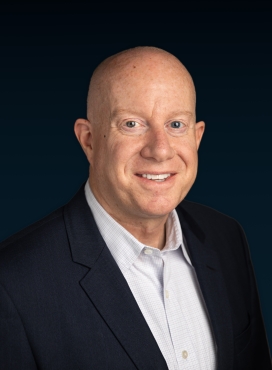
Bret Scholtes
Bret Scholtes is the Chief Operating Officer of Cooke Aquaculture USA, where he is responsible for aligning operations and commercial execution to support Cooke’s growth across the integrated seafood value chain.
Previously, Bret served as President and CEO of Omega Protein Corporation, a vertically integrated marine ingredient company publicly traded on the New York Stock Exchange until it was sold to Cooke in 2017. Bret joined Omega from General Electric, and he served as the company’s CFO before becoming CEO in 2012.
He holds a B.S. in Accounting from the University of Missouri and an MBA in Finance from NYU.
- Market Forum Supply- Tuesday 13 May 2025
Vertical Integration in the Aquaculture Sector – A Case with Cooke
This presentation will explore the strategic value of vertical integration within the aquaculture industry, using Cooke as a real-world case study. Mr. Scholtes will discuss how controlling key stages of the value chain can drive efficiency, product quality, and sustainability. We’ll examine the operational, commercial, and environmental benefits that vertical integration has brought to Cooke, as well as challenges encountered along the way. This session will offer practical takeaways on how vertical integration can enhance resilience, margin performance, and long-term growth in an increasingly complex global seafood market.
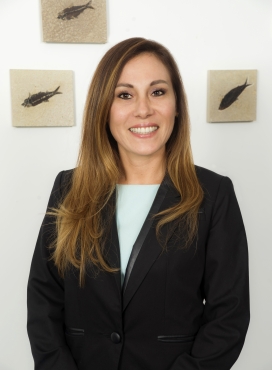
Judith Vivar Ramírez
Business administrator with a master's degree in International Business. She has extensive experience in companies in the Peruvian fishing sector, primarily in the areas of marketing, quality, and commercialization of fishmeal and fish oil, as well as management and operation of logistics operators within the distribution chain. She also has experience in imports and exports of soybean meal and fertilizers. She has held her current position since 2009.
- Market Forum Supply - Tuesday 13 May 2025
Peruvian anchovy fishery and marine ingredients: a post El Niño analysis
We will present the results of Peruvian anchovy fishery in 2024, after the impact of El Niño phenomenon. Outstanding results in the first and second fishing season of 2024 confirm the recovery of the industry and give us important lessons: (i) fishing is an essential economic sector in Peru and its growth drives the country's economic recovery, (i) gratitude for the richness and capacity of recovery of Peruvian sea, allows to maintain a healthy biomass, (i) unity is our strength: thanks to appropriate measures implemented by authorities and best practices of companies, we are internationally recognized for sustainable fishing with high social impact. Together, we keep working towards a sustainable future.
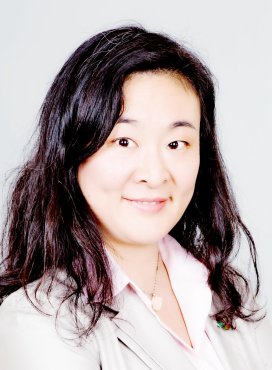
Maggie Xu
Maggie Xu joined IFFO in October 2011 as the China Manager and was promoted in October 2013 to China Director. She was previously a Trade Commissioner responsible for fish, seafood, meat and processed food and beverage products at the Embassy of Canada to the P. R. China for ten years. Maggie has a B.A. degree in English language and completed a summer school jointly given by London School of Economics and Peking University on international finance.
TBC
- Market Forum Demand - Wednesday 14 May 2025
China Market Update
TBC
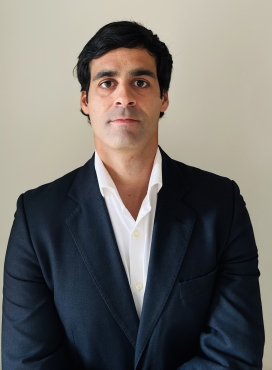
Jose Antonio Zalvide
Jose A. Zalvide holds a degree in Veterinary Medicine from the Universidad Complutense de Madrid and a Master's in Food Safety, completed through the Madrid Veterinary Association. He has extensive experience in quality and purchasing management, working in both the UK and Spain. He has held key roles such as Quality Director at Althams Butchers & Fine Foods, Quality Director at CLC (Vall Companys Group), and Quality & Purchasing Director at C&D Foods. As Director of Purchasing, he was responsible for sourcing high-quality materials, managing supplier relationships, and optimizing the procurement process to ensure cost efficiency and product excellence. His combined expertise in food safety, quality control, and purchasing has driven continuous improvements in the food industry, enhancing overall operational performance.
- Market Forum Demand - Wednesday 14 May 2025
Petfood and marine ingredients: where do we stand?
The lecture focuses on the applications of marine animal-based products in dry petfood. It highlights the nutritional benefits these products provide, such as high-quality proteins, omega-3 fatty acids, and essential minerals that support the health of pets.
The presentation also discusses sustainability, emphasizing responsible sourcing to minimize environmental impact.
Additionally, it addresses the growing trend of using marine-based products in premium and specialized pet foods, aiming to improve pet health and meet consumer demand for high-quality ingredients.




